Related Research Articles
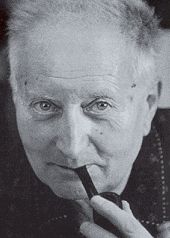
Jean Giono was a French writer who wrote works of fiction mostly set in the Provence region of France.
Sébastien Japrisot was a French author, screenwriter and film director. His pseudonym was an anagram of Jean-Baptiste Rossi, his real name. Renowned for subverting the rules of the crime genre, Japrisot broke down the established formulas "into their component pieces to re-combine them in original and paradoxical ways." Some critics argue that though Japrisot's work may lack the explicit experimental element present in the novels of some of his contemporaries, it shows influences of structuralist theories and the unorthodox techniques of the New Novelists.
Proletarian literature refers here to the literature created by left-wing writers mainly for the class-conscious proletariat. Though the Encyclopædia Britannica states that because it "is essentially an intended device of revolution", it is therefore often published by the Communist Party or left-wing sympathizers, the proletarian novel has also been categorized without any emphasis on revolution, as a novel "about the working classes and working-class life; perhaps with the intention of making propaganda". This different emphasis may reflect a difference between Russian, American and other traditions of working-class writing, with that of Britain. The British tradition was not especially inspired by the Communist Party, but had its roots in the Chartist movement, and socialism, amongst others. Furthermore, writing about the British working-class writers, H Gustav Klaus, in The Socialist Novel: Towards the Recovery of a Tradition (1982) suggested that "the once current [term] 'proletarian' is, internationally, on the retreat, while the competing concepts of 'working-class' and 'socialist' continue to command about equal adherence".
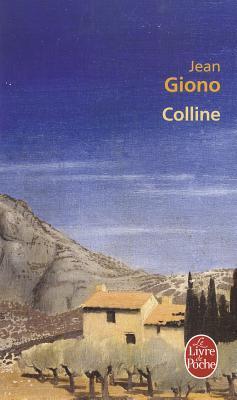
Colline is a 1929 novel by the French writer Jean Giono. It has also been published as Hill of Destiny. It tells the story of a small hamlet in Provence where the superstitious residents struggle against nature, as their settlement is struck by several misfortunes. Colline was Giono's debut novel. It is the first installment in the author's Pan trilogy; it was followed by the standalone novels Lovers are Never Losers and Second Harvest.

Harvest is a 1937 French drama film directed by Marcel Pagnol, starring Fernandel, Orane Demazis, Marguerite Moreno and Gabriel Gabrio. The narrative revolves around a farming village where only three inhabitants remain, but they are told that if only one of them, Panturle, manages to find a wife, the village will be able to prosper again. The film is based on the 1930 novel Second Harvest by Jean Giono. It was released in France on 28 October 1937 and in the United States on 2 October 1939.

Tender Shoots is a 1921 short story collection by the French writer Paul Morand. It has also been published in English as Green Shoots and Fancy Goods. It consists of three stories about independent young women. The stories are mainly set in London, where Morand had worked as a diplomat for the Embassy of France. Morand wrote the stories right before and during the first few months of World War I. The preface was written by Marcel Proust.

Joy of Man's Desiring is a 1936 novel by the French writer Jean Giono. The story takes place in an early 20th-century farmer's community in southern France, where the inhabitants suffer from a mysterious disease, while a healer tries to save them by teaching the value of joy. The title is taken from Johann Sebastian Bach's chorale Jesu, Joy of Man's Desiring. An English translation by Katherine Allen Clarke was published in 1940.

Balcony in the Forest is a 1958 novel by the French writer Julien Gracq. It tells the story of a French lieutenant, Grange, who is assigned to a concrete antitank blockhouse in the forest of the Ardennes in the autumn of 1939, where he waits with three enlisted men for World War II to reach that section of France.

The Song of the World is a 1934 novel by the French writer Jean Giono. The narrative portrays a river and human vendettas as a part of nature. The story contains references to the Iliad. Its themes and view on nature were heavily inspired by Walt Whitman's poetry collection Leaves of Grass. It was adapted into the 1965 film Le Chant du monde, directed by Marcel Camus.

Blue Island is a 1988 novel by the French writer Jean Raspail. The narrative is set in Touraine during World War II, where a charismatic boy gathers his friends on an island, where they play war games which become increasingly more interlinked with reality. The book was published in English in 1991, translated by Jeremy Leggatt.

The Straw Man is a 1957 novel by the French writer Jean Giono. Its French title is Le Bonheur fou, which means "the mad happiness". The story is set in the 1840s and follows Angelo Pardi as he is caught up in plots leading up to the Italian revolution of 1848. The novel is a standalone sequel to The Horseman on the Roof, which is set earlier and also features Pardi as the main character. Several standalone sequels followed in what is known as the Hussar Cycle. The Straw Man was published in English in 1959, translated by Phyllis Johnson.

Lovers Are Never Losers is a 1929 novel by the French writer Jean Giono. It tells a love story set in rural France in the early 20th century. It is the standalone second entry in Giono's Pan trilogy; it was preceded by Colline and followed by Second Harvest. It was published in English in 1931, translated by Jacques Le Clercq.
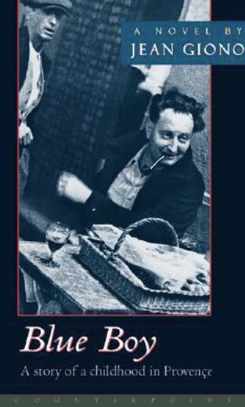
Blue Boy is a 1932 novel by French writer Jean Giono. It tells the story of a family in Provence, with an ironer mother and a shoemaker father. The book is largely autobiographical and based on Giono's childhood, although it has many fictional anecdotes. An English translation by Katherine A. Clarke was published in 1946.

The Malediction is a 1952 novel by the French writer Jean Giono. It tells the story of a landowning family in Provence. The family suffers under a curse which takes different forms over the generations. An English translation by Peter de Mendelssohn was published in 1955.
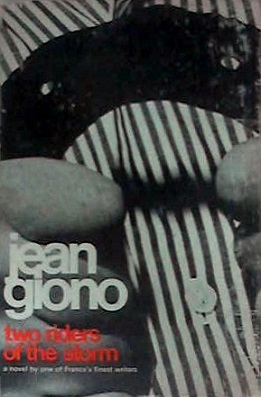
Two Riders of the Storm is a 1965 novel by the French writer Jean Giono. An English translation by Alan Brown was published in 1967. The book was the basis for the 1984 film Les Cavaliers de l'orage, directed by Gérard Vergez. The film received the award for Best Music and was nominated for Best Set Design at the 10th César Awards.

Nothing to Make a Fuss About is a 1953 novel by the French writer Roger Nimier. The narrative is set in Paris right after World War I. It tells the story of a female ex-ambulance driver with a passion for the arts, who falls in love with a disillusioned Austrian painter, while she in turn is adored by a young woman. The novel was published in English in 1954, as part of an omnibus volume titled Children of Circumstance.
Evil Angels is a 1981 novel by the French writer Pascal Bruckner. The French title is Lunes de fiel, which literally means "moons of bile", a pun on "lune de miel", "honeymoon". The story takes place on a passenger ship heading from Marseille to Istanbul, and focuses on a couple who meet a man determined to break them apart. The book was published by Éditions du Seuil. It was published in English in 1987, translated by William R. Beer.
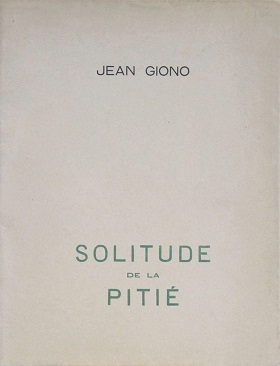
The Solitude of Compassion is a 1932 short story collection by the French writer Jean Giono. The stories focus on rural life in Provence. The book was published in English in 2002, translated by Edward Ford.
Jean Giono was a French author who wrote works of fiction mostly set in Manosque in the Provence region of France.

The Pan trilogy consists of three novels by the French writer Jean Giono, published in 1929–1930. The stand-alone stories are set in Provence and revolve the struggles of the peasant population. Two of the novels were made into films in the 1930s by Marcel Pagnol.
References
- ↑ Harvest. OCLC 2107221 . Retrieved 2015-03-25– via WorldCat.
- ↑ Regain. OCLC 10365000 . Retrieved 2015-03-25– via WorldCat.
- ↑ Second harvest. OCLC 41503429 . Retrieved 2015-03-25– via WorldCat.
- ↑ Nugent, Frank S. (1939-10-03). "'Harvest,' Jean Giono's Pastoral of Provence, Opens at the World After Reversal of Censor Ban". The New York Times . Archived from the original on 2014-07-11. Retrieved 2021-12-20.
{{cite web}}: CS1 maint: unfit URL (link) - ↑ Staff writer (1999-08-30). "Second Harvest". Publishers Weekly . Retrieved 2015-03-25.